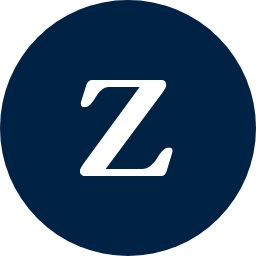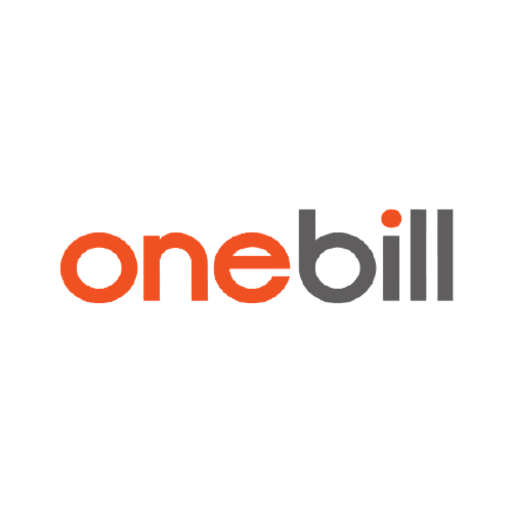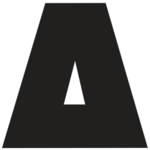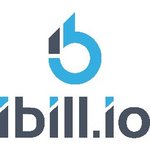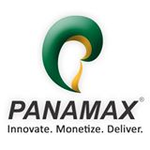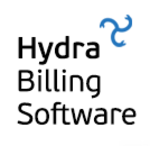Yes, good billing and provisioning software should be compatible with different devices and platforms. This encompasses desktops, laptops, tablets, and smartphones, as well as operating systems including Windows, Mac, iOS, and Android. To enable seamless and fast billing and provisioning procedures, firms with remote or mobile staff must have access across numerous devices and platforms.
List of 20 Best Billing and Provisioning Software
OmniCare: the revolutionary software that is transforming patient management. Through its cutting-edge features, OmniCare simplifies billing and optimizes data management, allowing healthcare providers to focus more on delivering exceptional patient...Read More OmniCare
Muvi Billing is a enterprise-grade solution for subscription management and recurring billing for digital businesses. With Muvi Billing, you can easily handle all aspects of invoicing, payment collection, and complex billing cycles with ease. Say goo...Read More Muvi Billing
BLUIQ - an innovative billing platform that will transform the way you handle subscription and usage-based billing. This game-changing software seamlessly integrates with your existing systems, offering unparalleled automation and adaptability. Say g...Read More BLUIQ
Freebe - an innovative software designed to support freelancers in client management, financial tracking, and invoicing. It offers automated administrative tasks and ensures compliance with legal standards, enabling freelancers to streamline their bu...Read More Freebe
Zenskar, a software that offers a comprehensive Quote-to-Cash solution for businesses in New York. With its advanced features such as subscription and usage-based billing, streamlined receivables management, and in-depth analytics, Zenskar simplifies...Read More Zenskar
Easy HMS is the EMR/EHR software that revolutionizes healthcare documentation. By seamlessly merging patient records, medical histories, diagnoses, treatments, and billing processes into one easy-to-use digital platform, Easy HMS streamlines and enha...Read More Easy HMS
BillCall is a billing software solution that simplifies invoice processing, boosts revenue management in real-time, and detects potential fraud. Our advanced features support efficient operations, accurate billing, and comprehensive financial analysi...Read More BillCall
Wise-Pay is the payment processing solution that transforms the way businesses handle financial transactions. With a focus on simplicity and security, Wise-Pay streamlines the payment process, ensuring smooth and dependable transactions. Say farewell...Read More Wise-Pay
Job Planner Pro is a project management solution that is transforming the industry. By utilizing advanced software, our platform promotes seamless teamwork, efficient task distribution, and elevated productivity, leading to enhanced organizational su...Read More Job Planner Pro
CG Invoicer is a invoicing software designed specifically for small businesses and freelancers. With its intuitive interface and customizable templates, billing becomes hassle-free. Keep track of payments and send automated reminders to clients. Deta...Read More CG Invoicer
eXsightis a call accounting software that offers unparalleled insight into your businesss telecom usage. With comprehensive reporting and automated tracking, eXsight helps businesses effectively manage communication, increase productivity, and reduce...Read More eXsight
OneBill solution for managing recurring billing and revenue for your business. Our comprehensive platform simplifies all aspects of the lead-to-revenue cycle and offers flexible billing options such as one-time, subscription, recurring, and usage-bas...Read More OneBill
RackNap is a trusted and comprehensive cloud marketplace and subscription management platform that optimizes billing and provisioning operations for increased profitability. With seamless integration and powerful business analytics, it enables busine...Read More RackNap
Datagate is solution for MSPs seeking to streamline their telecom billing procedures. With seamless integrations and automated tax calculations, it saves time, minimizes errors, and increases revenue. Our customizable and tailored features ensure eff...Read More Datagate
Splynx is a software specifically designed for small and medium-sized ISPs. It offers a complete solution, perfect for elevating your business and establishing yourself as the top ISP in your area. Experience a user-friendly interface and try out the...Read More Splynx
ABST Billing Software solution for managing sales, purchases, payments, stock, and expenses, even for those without an accounting background. Specifically designed for small and medium enterprises, this software simplifies the generation of GST compl...Read More ABST
Aria Billing Cloud - a top-of-the-line SaaS billing automation solution designed to streamline complex billing processes and cater to various business models. This robust platform empowers enterprises to enhance efficiency, elevate customer satisfact...Read More Aria Billing Cloud
iBill.io, the user-friendly software designed to streamline ISP management. With its advanced billing automation, secure authentication, and customizable customer portal, iBill.io saves time and resources while elevating service delivery and customer...Read More iBill.io
Bill Call solution to streamline your billing processes. Featuring a user-friendly interface and cutting-edge features, this revolutionary software will simplify invoicing and payment management like never before. Say goodbye to mistakes and delays,...Read More Bill Call
Hydra Billing is a OSS/BSS platform designed to streamline billing processes for service providers. Our platform offers pre-made solutions and customizable options to meet specific industry needs. With a suite of advanced features, we help simplify b...Read More Hydra Billing
Learn More About Billing and Provisioning Software
- What Is Billing and Provisioning Software?
- What Are The Recent Trends In Billing and Provisioning Software?
- Benefits Of Using Billing And Provisioning Software
- Important Factors To Consider While Purchasing Billing And Provisioning Software?
- What Are The Key Features To Look For In Billing And Provisioning Software?
- Why Do Businesses Need Billing And Provisioning Software?
- How Much Time Is Required To Implement Billing And Provisioning Software?
- What Is The Level Of Customization Available in Billing And Provisioning Software?
- Which Industries Can Benefit The Most From Billing And Provisioning Software?
- Conclusion
What Is Billing and Provisioning Software?
Billing and Provisioning Software is a strong tool that simplifies the billing and provisioning process for organizations of all sizes. It has a full range of tools and functionalities for managing billing, invoicing, and client accounts, as well as automating the provisioning of services including telephones, internet, and cloud-based solutions.
At its core, billing and provisioning software serves as a central hub, integrating several systems and processes to provide a comprehensive view of client data and services. This enables organizations to simply manage and track service usage, precisely bill clients, and automate the deployment of new or updated services.
One of the primary advantages of employing billing and provisioning software is the elimination of manual processes, which helps to reduce human error while saving time and resources. Furthermore, it provides a variety of customized features to meet the unique demands of various sectors, such as tiered pricing, invoicing, and flexible payment alternatives.
Billing and provisioning software allows organizations that provide subscription-based services to easily manage recurring payments as well as track and analyze customer accounts, hence enhancing overall business efficiency and customer satisfaction. Investing in billing and provisioning software can result in cost savings, more accuracy, and better service delivery, making it an invaluable tool for any firm trying to optimize its billing and provisioning procedures.
When choosing this type of software, make sure to assess your company's requirements and select a solution that provides the necessary functionality and integrations for your specific industry.
What Are The Recent Trends In Billing and Provisioning Software?
Billing and provisioning software, often known as subscription management software, is becoming more popular among organizations of all kinds. This sort of software is intended to expedite and automate the billing and subscription management processes for customers. With technological improvements, the billing and provisioning software sector is continually developing to accommodate changing corporate needs.
Before making a purchase, consider the following current trends in billing and provisioning software:
1. Cloud-based Solutions: As cloud computing has grown in popularity, an increasing number of enterprises are transferring their billing and provisioning procedures online. This makes it easier to access and manage data, as well as to scale up or down as needed.
2. Subscription Economy: In recent years, the subscription-based business model has grown in popularity, and billing and provisioning software has evolved to meet this need. Many software suppliers now provide options including tiered pricing, automated subscription renewals, and prorated billing.
3. Integration with Other Systems: In today's digital age, firms frequently employ several software systems to manage various elements of their operations. Billing and provisioning software is currently being created to interact with other systems such as CRM, accounting, and inventory management, resulting in a more comprehensive solution for enterprises.
4. Automation and AI: In order to save time and eliminate human error, billing and provisioning software is increasingly adding automation and artificial intelligence (AI) into its procedures. This makes invoicing, payment processing, and customer communications more efficient.
5. Mobile Accessibility: As users rely increasingly on their mobile devices, billing and provisioning software are providing mobile-friendly interfaces and apps. This enables business owners and customers to handle subscriptions and payments on the road, making the process more convenient for both parties.
Benefits Of Using Billing And Provisioning Software
Billing and provisioning software is a crucial tool for any business that wants to improve its subscription and service management procedures. This powerful program automates invoicing, customer management, and service provisioning, bringing various benefits to both businesses and customers.
we'll look at the main benefits of using billing and provisioning software, allowing you to make an informed decision when selecting the best solution for your organization.
1. Increased Efficiency And Accuracy: One of the primary advantages of employing billing and provisioning software is the ability to automate procedures and operations that were previously manual. By removing the need for manual data entry and processing, businesses may drastically reduce the risk of human mistake while saving critical time. This, in turn, leads to increased billing efficiency and accuracy, freeing up organizations to focus on other vital responsibilities.
2. Streamlined Billing And Invoicing: Billing and provisioning software allows organizations to easily create and handle invoices, saving time and effort over traditional billing techniques. The software can also manage complex billing scenarios like proration and various billing cycles, resulting in accurate and timely invoices. This simplifies the billing process while also increasing overall client happiness.
3. Improved Customer Management: Billing and provisioning software includes customer management features such as consolidated customer databases, self-service portals, and customizable service plans. These capabilities help organizations manage and connect with their consumers more effectively, resulting in improved customer relationships and higher retention rates.
4. Real-Time Monitoring and Reporting: Most billing and provisioning software includes real-time monitoring and reporting features. This enables businesses to measure income, consumer activity, and service consumption, resulting in significant data for strategic decision-making and service improvement.
5. Scalability and Flexibility: As a business expands, its billing and service requirements may become more complex. Billing and provisioning software is highly scalable and versatile, allowing businesses to swiftly adjust and extend their operations without fear of outgrowing their billing system.
6. Cost Savings: By automating billing and provisioning procedures, firms can minimize personnel expenses and the risk of billing errors, resulting in considerable long-term savings. Furthermore, the adjustable pricing plans offered by most software providers cater to organizations of all sizes, making it an affordable option.
Important Factors To Consider While Purchasing Billing And Provisioning Software?
When it comes to choosing billing and provisioning software, you should carefully consider your alternatives and select a solution that suits your company's specific needs and goals.
Here are some important considerations to consider before making your decision:
1. Functionality: The first thing to check is whether the software includes all of the features and capabilities you need to streamline your billing and provisioning procedures. This provides features like automatic invoice generation, payment processing, and resource provisioning.
2. Integrations: Look for software that works easily with your current systems and tools, like as accounting software and customer relationship management (CRM) platforms. This will facilitate data interchange while reducing manual data entry responsibilities.
3. Scalability: As your business expands, so will your billing and provisioning requirements. Ensure that the software can handle an increasing volume of transactions and readily accept new customers, goods, or services without affecting performance.
4. Customization: Each organization is unique, and your billing and provisioning needs may differ from those of others in your field. Find software with customization options to personalize the solution to your exact requirements.
5. User-friendly interface: A user-friendly interface is critical for both you and your team because it may significantly improve productivity and efficiency. Look for software with an easy-to-use, well-organized interface that requires minimal training.
6. Security: Given the sensitive nature of the financial data involved, security is of the highest priority. To secure your business and client information, look for software that includes powerful security features such as data encryption, access limits, and regular backups.
7. Assistance And Training: Make sure the software vendor provides dependable and accessible technical assistance, as well as thorough training materials for your team. This will aid in the smooth implementation and operation of the software.
8. Pricing: Consider your budget and select software that is reasonably priced for its functionality and fits within your budget. It's also critical to understand any additional costs for integrations, customisation, or support.
9. User Reviews And References: To get a better grasp of the software's dependability and performance, check for user reviews and references from other companies in your field. This can provide useful information about the software's strengths and potential disadvantages.
10. Research The vendor's Reputation And Durability In The Market: A well-established and reputed organization is more likely to provide a dependable and consistent solution for your billing and provisioning requirements. Take the time to carefully consider these variables and compare several software choices to find the best fit for your organization. A well-chosen billing and provisioning software can significantly enhance operational efficiency while also contributing to the growth and success of your firm.
What Are The Key Features To Look For In Billing And Provisioning Software?
When selecting billing and provisioning software, there are a few critical characteristics to consider. These characteristics are critical to ensuring that the software is efficient, user-friendly, and fits your company requirements. Here are the main features to look for when choosing a billing and provisioning software.
1. Automated Invoicing And Billing Management: Look for software that allows you to create and send invoices automatically. This will save you time and limit the possibility of mistakes. The software should also be able to handle various billing models, such as one-time, recurring, and usage-based pricing.
2. Centralized Provisioning: The software should include a centralized provisioning system that lets you handle all of your services and customers from a single location. This will streamline your workflow and increase efficiency.
3. Real-Time Monitoring And Reporting: The software should enable real-time monitoring and reporting on your billing and provisioning operations. This will enable you to proactively detect and handle issues, track your performance, and make data-driven decisions.
4. Customizable Billing Plans: Look for software that allows you to build customized billing plans based on the demands of your consumers. This may offer options for prorated payments, reductions, and add-ons.
5. Integration With Third-Party Systems: Select software that is compatible with your current CRM, accounting, and other business systems. This ensures that data flows smoothly and reduces the need for manual data entry.
6. Multiple Payment Options: Your software should allow a variety of payment methods, including credit/debit cards, ACH, and electronic checks. This will make things easier for your clients while also increasing your revenue.
7. Customer Self-Service Portal: A self-service portal enables customers to monitor and control their billing and provisioning information, minimizing the need for manual support. Look for software that allows you to modify the gateway to match your brand.
8. Scalability: As your organization expands, so will your customer base and billing requirements. Choose scalable software that can manage a huge volume of transactions while maintaining performance.
9. Multi-Currency And Tax Support: If your company works internationally, seek for software that can handle numerous currencies and tax laws. This ensures precise billing and prevents any compliance concerns.
10. Customer assistance: Finally, assess the level of customer assistance provided by the software vendor. Look for a provider that provides fast and helpful support to enable a seamless adoption and avoid any future complications. To summarize, when selecting billing and provisioning software, look for features like automated invoicing, centralized provisioning, real-time monitoring and reporting, customizable billing plans, integration capabilities, multiple payment options, a customer self-service portal, scalability, multi-currency and tax support, and customer service. By taking these characteristics into account, you can guarantee that the software fulfills your business requirements and allows you to handle your billing and provisioning procedures more efficiently.
Why Do Businesses Need Billing And Provisioning Software?
Billing and provisioning software has become an indispensable tool for businesses of all sizes, providing a streamlined and automated solution for managing the billing and provisioning processes. This type of software is essential for firms who offer subscription-based services or sell products and services on a regular basis.
First and foremost, billing and provisioning software simplifies the complex and time-consuming operation of preparing and delivering invoices to clients. The program automates the billing process, assuring accurate and timely invoicing while eliminating the possibility of human error. This not only saves businesses time and resources, but it also minimizes the likelihood of billing disputes and increases overall customer satisfaction.
Furthermore, billing and provisioning software includes sophisticated reporting and analytics capabilities, giving firms important insights into their billing and revenue data. This aids in recognizing patterns, estimating income, and making sound business decisions. Businesses may also quickly track customer payments and outstanding balances, resulting in improved cash flow management.
Furthermore, the program simplifies the provisioning process, which includes activating and deactivating services or products for clients. Businesses can use automated provisioning to efficiently manage their resources and offer services quickly, minimizing the need for manual intervention and lowering the risk of errors.
Another key advantage of billing and provisioning software is its pricing and billing model flexibility. Businesses can easily create several pricing tiers, discounts, and promotions to meet the unique needs of their clients. The software also supports flexible billing cycles, ranging from monthly to annual, allowing businesses to select the optimal billing strategy for their clients.
Furthermore, billing and provisioning software connects with other business systems, such as CRM and accounting software, resulting in a more efficient workflow and removing the need for human data entry. This not only increases efficiency, but also reduces the likelihood of data inaccuracies and ensures financial reporting accuracy.
How Much Time Is Required To Implement Billing And Provisioning Software?
The implementation time for billing and provisioning software might vary depending on a number of factors, including the complexity of your business operations, the size of your organization, and the unique features and customizations required by your company. On average, the implementation procedure can last from a few weeks to several months.
The first step in the implementation process is to understand your company's requirements and map out the procedures that the software will need to handle. This can take many weeks because it entails gathering requirements from various stakeholders and doing a full audit of your present invoicing and provisioning procedures. Once the requirements have been defined, the software can be built and customized to meet your specific business needs.
This can take many weeks or even months, depending on the complexities of your business operations and the extent of customization needed. After the software is configured, it will be tested to confirm that it satisfies all of the requirements and works properly. This process may take many weeks, and any faults or difficulties discovered during testing must be resolved before the product may be fully installed.
Finally, once testing is completed, the software will be made available to users, and training will be provided to guarantee a smooth transition and uptake. This phase might last from a few weeks to a month, depending on the size of your firm and the number of users. To summarize, while the installation time for billing and provisioning software may vary, it is critical to thoroughly examine your business requirements and involve all stakeholders in the process to ensure a successful and efficient deployment.
What Is The Level Of Customization Available in Billing And Provisioning Software?
When it comes to billing and provisioning software, customisation is critical because each organization has distinct demands and expectations. To guarantee that a program complies with your company operations, you must first understand the extent of customization available. Most billing and provisioning software offers a variety of customization options, allowing firms to adjust the software to their individual needs.
These customization options include, but are not limited to, custom fields, templates, processes, and reports. Custom fields enable organizations to create their own fields in the software, such as customer or product-specific information. This not only ensures that all relevant data is collected, but it also facilitates tracking and analysis.
Templates allow organizations to create personalized invoices, quotations, and other documents that represent their brand and messaging. This not only adds a professional touch to the documents, but also establishes a consistent brand image. Workflows are another important part of customisation, allowing businesses to define a set of rules and actions for certain operations within the software.
This guarantees that jobs are executed in a methodical and streamlined manner, which saves time and increases efficiency. Reporting is a vital aspect of billing and provisioning software, and the level of customization available varies by provider. Businesses should search for software that has powerful reporting capabilities, including custom filters, groupings, and the ability to produce tailored reports.
Which Industries Can Benefit The Most From Billing And Provisioning Software?
Billing and Provisioning Software is a crucial tool for businesses of all sizes, providing a streamlined and efficient way to manage billing and service provisioning processes. This software is especially beneficial for certain industries that have complex billing structures and require precise tracking and management of services being provided.
we will explore the industries that can benefit the most from Billing and Provisioning Software. Telecommunications: Telecom companies have complex billing processes with multiple services, plans, and subscriptions that need to be managed and tracked. Billing and Provisioning Software streamlines these processes, ensuring accurate and timely billing for services such as voice, data, and internet. It also facilitates the provision of new services and upgrades, improving the customer experience.
1.Cloud Service Providers: With the rise of cloud computing, there has been an increase in demand for billing and provisioning solutions that can handle the complexities of cloud services. Billing and Provisioning Software allows cloud service providers to manage subscription-based services, track usage, and generate accurate and transparent bills for their customers.
2. IT Services: Companies that offer IT services, such as software development, web hosting, and managed services, can also benefit greatly from Billing and Provisioning Software. It helps them manage the billing and invoicing process for their clients, track project costs, and accurately bill for services rendered. This software also allows for easy customization of invoices and reports to suit the needs of different clients.
3. Energy And Utility Companies: The energy and utility sector has complex billing structures, including meter readings, usage-based billing, and tariff plans. Billing and Provisioning Software automates these processes, ensuring accurate billing and timely delivery of bills to customers. It also helps in optimizing revenue by detecting errors or discrepancies in billing, reducing disputes and improving customer satisfaction.
4. Healthcare: Billing and Provisioning Software has also proven to be beneficial for the healthcare industry. It helps healthcare providers manage billing, payments, and claims processing, reducing the administrative burden and improving cash flow. This software also ensures compliance with healthcare regulations and streamlines the process of managing insurance claims.
Overall, Billing and Provisioning Software is a valuable tool for companies that have complex billing and service provisioning processes. It improves efficiency, accuracy, and customer satisfaction, making it an essential investment for businesses looking to streamline their billing operations. As a buyer, it is important to assess the specific needs of your industry to find the right Billing and Provisioning Software that caters to your unique requirements.
Conclusion
After carefully reviewing the numerous solutions on the market, it is evident that Billing and providing Software plays a critical role in streamlining and managing the complicated operations involved in billing and service providing for companies of all sizes. The correct software can automate and streamline activities, increase efficiency, and ultimately boost profitability.
Our research has identified the most important features and elements to consider when selecting the correct Billing and Provisioning Software for your organization. Scalability, compatibility with current systems, configurable dashboards, thorough reporting, and connection with third-party apps are some of the features. Before making a decision, you must carefully consider your business's needs and budget.
Consider conducting demos, reading reviews, and soliciting recommendations from industry specialists to obtain a deeper grasp of the software's capabilities and reputation. In addition, ask about the software's customer support services and training programs to ensure a seamless transition and successful deployment.
Overall, investing in Billing and Provisioning Software is a wise move for any company seeking to improve its billing procedures and service delivery. By carefully analyzing all of the important elements and features, you can choose software that suits your individual requirements and helps drive your organization forward.
Billing and Provisioning Software FAQ's
Can Billing and Provisioning Software Be Accessed Across Multiple Devices And Platforms?
Is Billing And Provisioning Software Future-Proof And Adaptable To Emerging Technologies Like Ai, Blockchain or Iot?
Yes, most modern billing and provisioning software is future-proof and adaptable to upcoming technologies such as artificial intelligence, blockchain, and the Internet of Things. These applications are intended to embrace new technology and keep up with the most recent industry breakthroughs. With features like as automated operations, real-time data analysis, and customized options, these products offer a versatile and adaptable solution for enterprises to meet changing market demands.
Is There A Free Trial Offered To Assess Billing and Provisioning Software Before Committing?
Yes, many billing and provisioning software firms provide free trial periods so that customers can evaluate their products before making a purchase decision. This enables potential clients to evaluate the software's features and functioning and determine whether it satisfies their business requirements. Free trials often last 14 to 30 days, providing adequate time to assess the software's capabilities and make an informed decision. Some companies may additionally offer demos or personalized demos to highlight the software's capabilities in greater detail.
Does Billing And Provisioning Software Offer Data Security Features And Meet Regulatory Compliance Standards?
Yes, most billing and provisioning software includes data security measures and adheres to regulatory requirements like HIPAA, PCI-DSS, and GDPR. These programs use advanced encryption techniques to protect sensitive information and provide built-in tools for data backups, access control, and compliance monitoring. This ensures that your data is secure and fulfills the industry-specific compliance criteria.
Can Billing And Provisioning Software Integrate Seamlessly With Existing Tools And Platforms?
Yes, most billing and provisioning software can simply interface with existing tools and platforms. These applications are intended to simplify and automate the billing and provisioning processes, making it easier for organizations to manage their operations. They can be combined with CRM systems, accounting software, and other technologies to create a more effective workflow. This gives firms with a comprehensive perspective of their operations as well as a more consistent corporate management experience.





